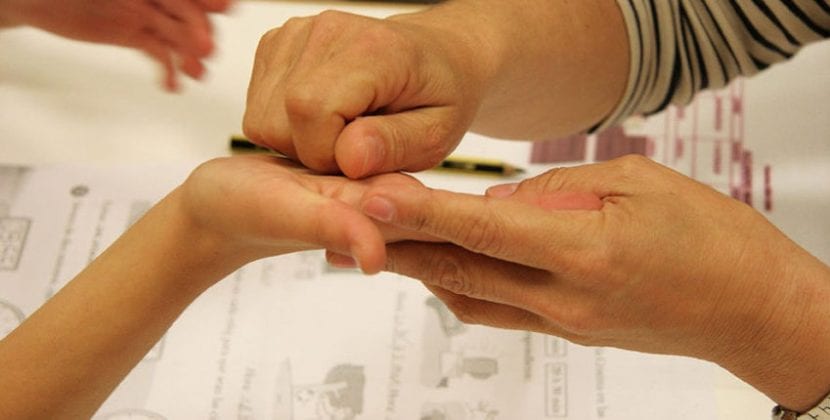
Next week we celebrate the International Sign Language Day, although the Spanish Language Day is in June. Today we want to talk to you about the importance of this language, for the inclusion of deafblind and deaf people in our society and so that listeners can also know this reality.
Sign languages it has all the formal characteristics of human language. It has a rich visual grammar and its own, they are languages of each culture (there is no universal sign language) and, therefore, they evolve.
Sign language at school

The reality is that the deaf community has been claiming, considering of vital importance the presence of their mother tongue, the implementation of sign language in education. However, despite the efforts and achievements made on paper, less than 1% of primary schools use sign language as a means of communication with deaf children. Families must continue to choose to take their children to special or adapted centers.
As we told you since 2016, through a decree, it is expected that students and students of Compulsory Secondary Education (ESO) and Baccalaureate have the opportunity to study sign language or braille in the schools. Undoubtedly, this is an integrative and fundamental measure in which students will have the opportunity to discover other subjects related to the communication of people with different capacities.
Other advantages are that increases self-esteem and motivation, both from deaf people and those who communicate with them. They feel safe and happy to be able to convey their feelings and make themselves understood easily. Obviously they improve social skills. There are many studies that affirm that knowing sign language enhances the intelligence of children when increase brain mass. This type of language stimulates the functioning of both hemispheres.
Curiosities about this language

Yes you have read correctly, because sign language it is considered a language. As we told you before it is not universal, there is no single sign language that is used worldwide. Not even in Spain is it the same for all communities. Catalan sign language is recognized.
According to the World Federation of Deaf People, there are more than 300 sign languages in the world as a result of cultural diversity. And it does exist, it is a form of communication with universal signs, with which it is possible to interpret international conferences.
Not all words have a sign and not all signs equal a word. There are set phrases established greetings, fashionable expressions that have been added. In short, something as plural, alive and rich as our oral language. In sign language not only use your hands, facial and body expression are very important to emphasize, show concern, doubt… Movement and direction of hand movement also influence.
In the deaf community, both deaf people and the hearing people who interact with them, in addition to their proper name, they have a personal sign. With this sign they are identified. It usually reflects a physical or psychic characteristic, their place of origin, their trade ... or the one that each one chooses for himself.
How to learn and teach sign language?

The first thing is to get in touch with associations and with the deaf community of your province, they will guide you on what the possibilities are. Besides on the Internet you will find several very interesting resources and videos.
Remember that sign language is not exclusive to deaf and boys and girls find it a lot of fun learn to communicate with gestures. In fact, there are 6-month-old babies who communicate in this way. Today many organizations offer classes in sign language for babies.
If you need guidance on how a deaf child perceives the world and how to help, we recommend this article.